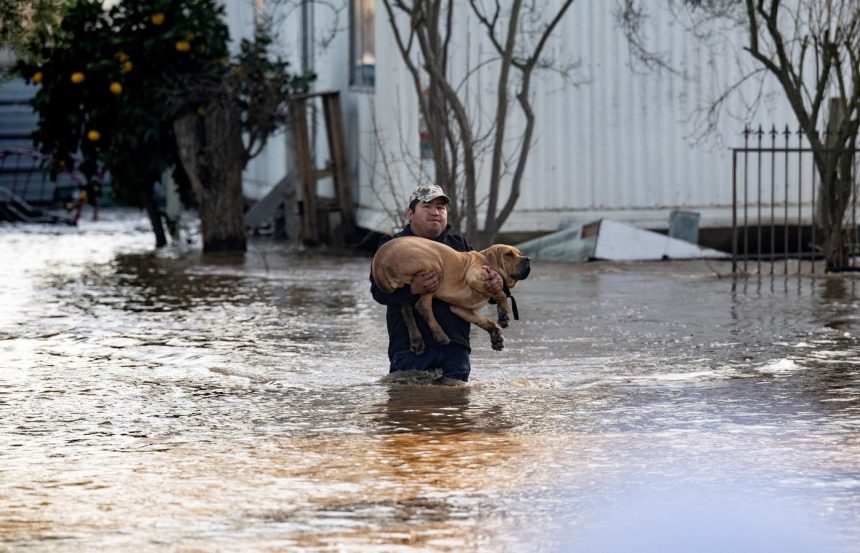As if this year’s extreme weather wasn’t enough already, we can expect worse next year, with more flooding and increased incidences of drought. That will continue to hurt farm crops, business, and the economy, as well as threatening your life.
Notable flood locations so far this year include San Diego, south Carolina, New York State, and Texas, according to the FloodList website. And there are even more overseas including Pakistan, Brazil, UAE
iShares MSCI UAE Capped ETF
It’s not just downpours either. The climate is delivering extreme heat and drought conditions in many areas as well. These include large parts of Africa, Southern European countries such as Spain, Malta, Italy, Greece and Romania; plus Latin America, according to NOAA (the National Oceanic and Atmospheric Administration.)
Such monstrous life-threatening weather isn’t likely to stop. In fact, it’s more likely to worsen, damaging crops, disrupting transportation, and impeding construction. And on top of that damaging properties and perhaps causing famine, one expert says.
First, we are in the midst of a so-called Grand Solar Cycle minimum, says agriculture and weather expert Shawn Hackett in his recent Hackett Money Flow Report newsletter. That’s a time when the number of dark spots on the solar surface falls. That leads to a highly amplified undulating Jet Stream weather system leading to off the charts weather extremes such as floods, droughts and higher or lower than normal temperatures, he writes.
There are two extra factors that are almost-certain to exacerbate the weather systems. over 58,000 Olympic-size pools, or roughly an increase of 10% of the vapor already in the atmosphere, according to Nasa. The Hackett report explains further:
- “The one-in-a-1000 year Tonga eruption has caused a rare climate event where record amounts of water vapor were thrusted into the stratosphere allowing massive amounts of moisture to supply storm systems in the form of epic flooding and the equal prospect of record heat stemming from the greenhouse gas qualities that make water vapor the poster child for this mechanism.”
These extreme conditions typically last up to five years before a peak and a five years after. That leaves another two years before the most atrocious weather patterns arrive, Hackett writes.
The second factor is the Gleissberg cycle, which is in fact a cycle of the 11-year sunspot cycles usually lasting around nine decades. At the end of the cycle, which is where we are near now, the peak and trough counts of sunspots are lower than normal. The last time this happened was nine decades ago in the 1930s.
“The 1930’s experienced one the hottest daytime temperature extremes in U.S. history,” Hackett writes. In other words, expect the peaks and troughs of weather to get worse over the next 24 months.
In turn, these potentially violent or extreme weather patterns will hurt crops in ways few people will have seen.
Problems already with us include the flooding of the rice and soybean crops in Brazil, as well as unusually wet spring in the heart of the grain belt in France.
Separately, Western Russia is likely to see high temperatures and drought, while some of the Middle East may see abnormal flooding.
Read the full article here
















